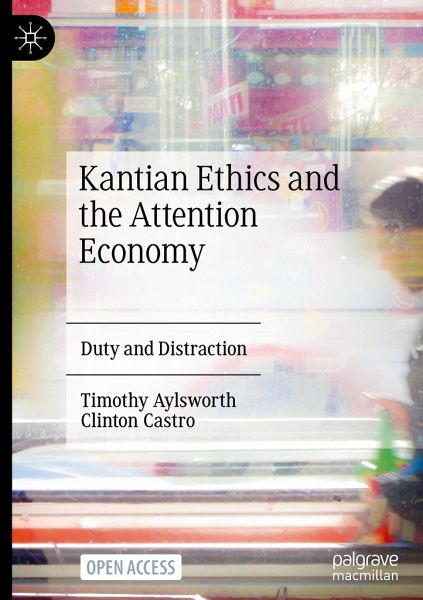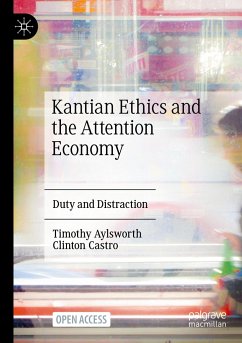
Kantian Ethics and the Attention Economy
Duty and Distraction

PAYBACK Punkte
19 °P sammeln!
In this open access book, Timothy Aylsworth and Clinton Castro draw on the deep well of Kantian ethics to argue that we have moral duties, both to ourselves and to others, to protect our autonomy from the threat posed by the problematic use of technology. The problematic use of technologies like smartphones threatens our autonomy in a variety of ways, and critics have only begun to appreciate the vast scope of this problem. In the last decade, we have seen a flurry of books making "self-help" arguments about how we could live happier, more fulfilling lives if we were less addicted to our phone...
In this open access book, Timothy Aylsworth and Clinton Castro draw on the deep well of Kantian ethics to argue that we have moral duties, both to ourselves and to others, to protect our autonomy from the threat posed by the problematic use of technology. The problematic use of technologies like smartphones threatens our autonomy in a variety of ways, and critics have only begun to appreciate the vast scope of this problem. In the last decade, we have seen a flurry of books making "self-help" arguments about how we could live happier, more fulfilling lives if we were less addicted to our phones. But none of these authors see this issue as one involving a moral duty to protect our autonomy.












